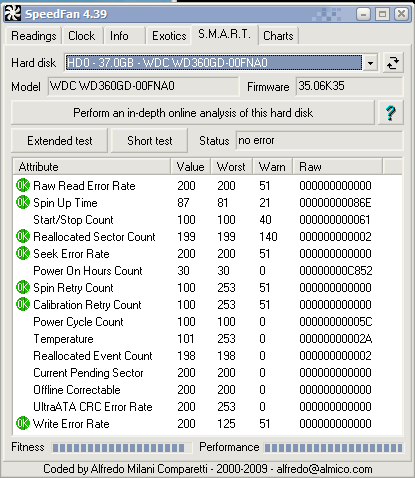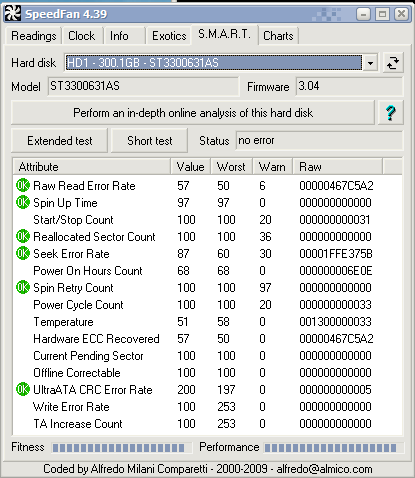2
1
Yesterday I came home from work to notice that not only had my PC reboot, it was stuck in the BIOS detecting hard drives. I eventually got the machine to boot but once I got into Windows it locked up. When I was able to get back into Windows (Win XP SP3) I noticed an error in the system event log: "The driver detected a controller error on \Device\Harddisk1\D" with Event ID: 11. I installed the SpeedFan utility and was able to capture the SMART information for both of my drives:
Hard Drive 0:

Hard Drive 1:

I don't know exactly how to interpret this data, but despite all the "OK"s I'm not entirely convinced that everything is ok. It seems like some of the values are beyond the thresholds which would indicate not ok.
Oddly enough, at this point the machine seems to be pretty stable. Any insight would be appreciated.
Edit: I appreciate everyone's concern, but I already have all my data backed up. At this point I'm just trying to repair the machine, data loss isn't a concern.
7rather than worrying about SMART data capture you should immediately backup your data while you can, only then proceed with diagnosis. "pretty stable" can be a pretty treacherous assumption that may cost you dearly. – None – 2009-10-01T12:28:41.847
That is a good point. I actually keep regular backups and already backed up the few things that changed since my previous backup now that I am seeing some issues. At this point I'm just concerned with getting the machine back to a healthy state. I don't want to just replace the drives if that isn't the issue (is it possible that both drives are going bad at the same time?). – None – 2009-10-01T12:52:18.577
possible? yes, likely? not really :) – None – 2009-10-01T12:59:23.780
1@Jason - I edited your post to put the images in there for you :) – Jared Harley – 2009-10-01T14:24:49.767